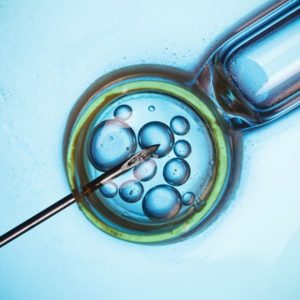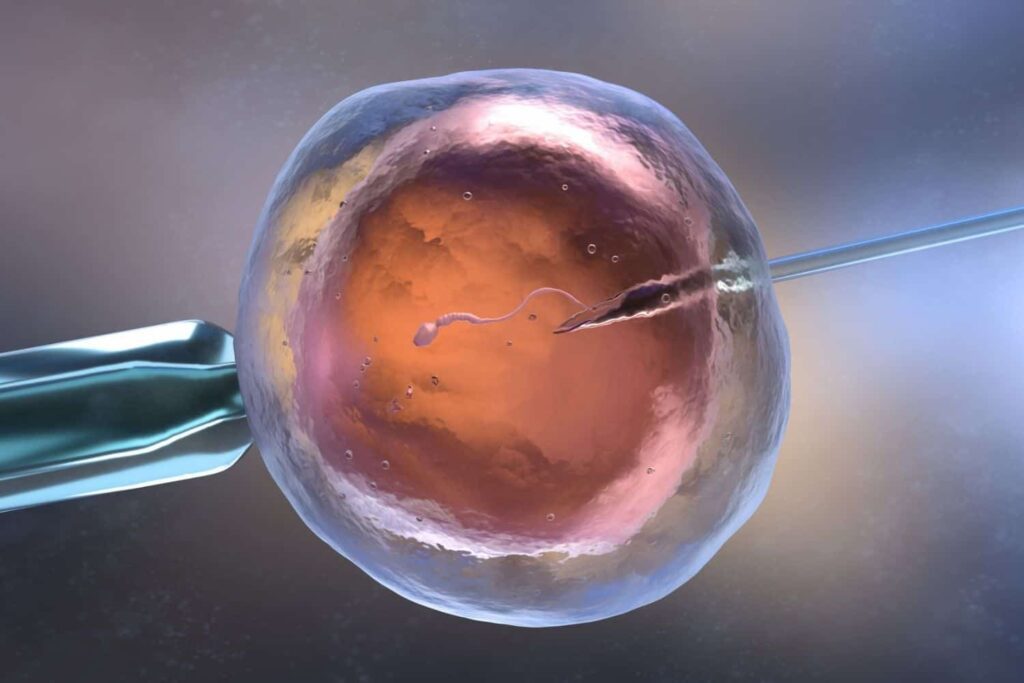Sperm DNA Fragmentations – Factors, Causes, Significance, Tests, and Treatments
Sperm DNA fragmentations refers to the extent of damage or breaks in the DNA strands within sperm cells. It’s a key factor that can influence fertility outcomes and impact the health of offspring. Recent research has highlighted the substantial increase in sperm DNA fragmentation among infertile males and those with weak semen parameters.
For successful fertilization and normal embryo development, the accuracy of genetic material in the sperm is crucial. Sperm DNA fragmentations is a term used to describe irregular sperm genetic material, which may result in male subfertility, IVF failure, and miscarriage.
Traditional semen analysis was conducted for sperm concentration, motility analysis, and morphology evaluation but it cannot analyze the sperm at the molecular level and thus cannot help to detect fragmentation of DNA.
What is DNA fragmentation in sperm?
Fragmentation of Sperm DNA can occur spontaneously or by laboratory personnel unintentionally. Spontaneous DNA fragmentation accumulates gradually in a cell. Fragmentation of DNA is more common among men with defective sperm quality.
It is useful in predicting results for IVF and ICSI. DNA fragmentation index is important in determining the success rate of IVF.
Get in touch for a Free Surrogacy Consultancy:
📲 +91-8800481100 ( WhatsApp, Line, Viber)
The Link Between Sperm DNA Fragmentation and Fertility
High levels of sperm DNA fragmentation can significantly hinder fertility. It can lead to lower embryo quality, higher rates of miscarriages, and reduced chances of successful pregnancies.
This is a concern that requires attention and understanding, especially for couples seeking assisted reproductive methods like in vitro fertilization (IVF) or intracytoplasmic sperm injection (ICSI).
Do sperm DNA fragmentations cause birth defects?
Causes of Sperm DNA Fragmentation
Several factors contribute to the increased levels of sperm DNA fragmentation. Oxidative stress, resulting from an imbalance between reactive oxygen species and antioxidants, is a major cause. Other factors include advanced paternal age, infections, varicoceles, testicular overheating, and lifestyle factors such as smoking, obesity, and poor eating habits.
If sperm with damaged DNA is used for IVF, it can lead to lower pregnancy success rates, increased rates of miscarriage in early pregnancy, chromosomal abnormalities in embryos, and genetic or birth defects in the baby conceived via fragmented sperms.
Various studies have shown that –
- High sperm DNA fragmentation affects the creation of blastocyst
- The higher levels of DNA fragmentation, lower chances of failed model treatment and miscarriage
- Sperm DNA fragmentation is higher in subfertile men with irregular sperm parameters
- High sperm DNA fragmentation is found in men with normal sperm counts.
Impact on Embryo Development
The impact of sperm DNA fragmentation isn’t limited to conception; it extends to embryo development as well. Embryos produced from sperm with severely fragmented DNA experience compromised growth from the early stages. This can lead to gene mutations, cellular degeneration, irregularities in children, and even a heightened susceptibility to childhood cancer.
At IVF Conceptions, we recognize the importance of addressing sperm DNA fragmentation for couples seeking to start a family. Effective evaluation and treatment options are crucial. A comprehensive evaluation involves tests like the sperm chromatin structure assay (SCSA), which assesses DNA damage and offers insights into fertility potential. Any intended father whose age is above 50 years is advised to do the sperm DNA fragmentation test.
 Types of DNA Fragmentation Test
Types of DNA Fragmentation Test
Sperm DNA damage is common in young as well as elderly men. There are various tests available to assess the fragmentation of the sperm in the DNA. Two of the most common tests are – Sperm Comet Test and SCSA.
SpermComet Test
A spermComet test is conducted by a specialist to check the quality of a man’s sperm and DNA. This looks at damage to the DNA sperm by calculating the actual damage in the sperm.
Damage to sperm DNA was shown to be a strong biomarker for both the diagnosis of male infertility and the prognosis of ART. This detects DNA damage to the sperm and also shows how much damage that sperm has to DNA. A 45 percent SpermComet test result means that each sperm being evaluated has an average of 45 percent DNA damage. A fluorescent probe that interacts with the molecule of DNA stains the sperm. When the DNA is broken, the fluorescence signal varies, and this is tracked using a flow cytometer.
SCSA (Sperm Chromatin Structure Assay)
SCSA stands for assaying the structure of sperm chromatin and is a new diagnostic tool that can identify sperm samples with a high degree of DNA fragmentation.
In samples with a high percentage of DNA fragmented sperm over 30% were associated with an almost four-fold reduction in term pregnancy. It also has to do with several miscarriages.
A male may have a good sperm count, good sperm motility, and normal sperm shape, but is still highly fragmented. This may be linked to the fertility issues of a couple. Depending on their reproductive history, the SCSA may be recommended for some patients. This examination is not a measure of the ability of the sperm to fertilize an egg.
Significance of DNA sperm fragmentation test
The fragmentation test will assess the fragmentation percentage of the sperm. Less than 15% of the damage is a very good result, while 16 to 29% is a medium result. More than 30% damage means higher fragmentation of the sperm, which indicates difficulty in achieving a healthy pregnancy, even with IVF.
High levels of sperm DNA fragmentation affect the development of blastocysts and there is a higher likelihood of failed fertility treatment and miscarriage once pregnancy is achieved.
Among subfertile men with abnormal sperm parameters, sperm DNA fragmentation is higher; however, men with healthy sperm parameters may also develop sperm abnormalities.
Highly fragmented sperm DNA embryos have a poor prognosis. High DNA fragmentation levels could lead to the initiation of natural cell death and offspring abnormalities.
 Advantages of Sperm Fragmentation Test
Advantages of Sperm Fragmentation Test
- Provides a comprehensive study of sperm DNA integrity that can help identify men at risk of subfertility
- Provides information that helps in male fertility clinical diagnosis, treatment, and management.
- It provides prognostic quality in determining the outcome of fertility treatment like IVF or IUI.
Factors that cause damage to the DNA of the sperm
There are many factors that damage sperm DNA –
- Age – Age is one of the most important factors. Damage to DNA can be increased with the age of the men. Men in their 50-60s are more likely to have fragmented sperm than compared to men in their 20-30s.
- When men have a chronic infection in the prostate
- Exposure to toxic agents and chemicals
- Chemotherapy
- Radiation
- Excessive heat
Causes of Sperm DNA Fragmentations
Besides stress, which can be associated with one or more of the following, is one of the major contributing factors to sperm DNA fragmentation –
- Infection and Pyrexia
- Abortive Apoptosis
- Occupational and Environmental Pollutants
- Advanced Age
- Recreational drugs
- Lapse of time from ejaculation
- Intrinsic causes like recombination deficiencies during spermatogenesis
- Increase in testicular temperature
- Variations in the expression of sperm protein
- Smoking
- Alcohol
- Diet
- Stress
- Poor eating habits
- Leucocytospermia
People who can benefit from the Sperm Fragmentation Test
- Varicocele
- Unexplained infertility
- Failed ICSI/IVF treatments
- Advanced age in male
- Poor blastocyst development
- Multiple miscarriages
- Arrested embryo development
- Bad semen parameters
 Treatment Options and Future Directions
Treatment Options and Future Directions
While some specific causes of DNA fragmentation may not be treatable, lifestyle changes and certain interventions can help mitigate the issue. Antioxidant supplementation, antibiotic treatments for infections, and lifestyle adjustments can contribute to reducing DNA fragmentation levels.
Emerging research also suggests that varicocele repair could positively impact sperm DNA integrity.
Can you get pregnant with high DNA fragmentations?
- DNA fragmentation of Sperm and Pregnancy potential are interrelated.
- Sperms with high DNA fragmentation fertilizing younger oocytes than older oocytes bring a stronger prognosis of successful pregnancy as they are much more efficient in DNA repair of damaged sperm. So, choosing a young egg donor can help advanced-age couples achieve pregnancy via IVF.
Can you improve sperm DNA fragmentation?
Treatments of high sperm DNA fragmentation:
It basically depends on the cause. If the damage is caused by free radicals, a lifestyle, and diet modification designed to protect against stress can help to reduce DNA fragmentation levels. There are various other treatments as well –
- Varicocele surgery
- Antibiotics in the coexistence of an infection
- Changes in the lifestyle – alcohol, cigarettes, and occupational
- diet – fresh foods, particularly antioxidants, green vegetables, and foods rich in vitamin C & E
- Sperm testicular aspiration may have better DNA integrity than sperm ejaculated as DNA damage occurs at the post-testicular level
- One should opt for ICSI treatment rather than IVF treatment
- Antioxidants such as astaxanthin, for three to six months, are also known to reduce DNA damage, either alone or in combination with other antioxidants.
Read more on this topic:
All about the cause of male infertility and how to improve
Tips for a successful IVF process
How to evaluate the Sperm DNA Fragmentations Report
The evaluation provides two indicators of DNA damage:
- DNA Fragmentation Index (%DFI): This represents the percentage of sperm cells with affected DNA.
The outcomes are categorized into four statistical ranges to assess fertility potency:
- Less than or equal to 15% DFI: Indicates excellent to sound sperm DNA credibility.
- Between 15 to 25% DFI: Reflects best to good sperm DNA credibility.
- Between 25 to 50% DFI: Represents good to weak sperm DNA credibility.
- Greater than or equal to 50% DFI: Points to exceptionally poor sperm DNA credibility.
| DFI Range | DNA Credibility |
| Less than or equal to 15% DFI | Excellent to sound sperm DNA credibility |
| Between 15 to 25% of DFI | Best to good sperm DNA credibility |
| Between 25 to 50% of DFI | Good to weak sperm DNA credibility |
| Greater than or equal to 50% DFI | Exceptionally poor sperm DNA credibility |
It’s important to note these rates in relation to both natural and assisted conception methods (IUI). The statistically significant DFI threshold for subfertility is established at over twenty-five percent.
While full-term pregnancies are possible even with a high DFI, it’s crucial to understand that as the degree of fragmentation increases, there is a higher likelihood of reduced-term pregnancies and miscarriages. These rates apply to both natural and assisted conception scenarios.
If the % DFI exceeds 25%, recent studies suggest that patients may consider strategies such as lifestyle changes, health interventions, or transitioning from IUI to IVF ICSI for improved outcomes.
It’s worth noting that sperm with a modest DFI may have normal nuclear morphology and can potentially fertilize eggs.
On the other hand, higher DNA sustainability (HDS), characterized by immature chromatin and irregular histones-to-protamine ratios, is associated with adverse maternity outcomes exceeding 25%.
Addressing DNA fragmentation involves strategies to mitigate oxidative stress and lifestyle modifications. While initial research on antioxidant supplements to reduce DNA damage shows promise, cautious prescribing is necessary, backed by substantial evidence.
Antibiotics can also be effective in reducing sperm DNA damage due to contamination, but proper diagnosis of harmful bacteria is crucial before initiating antibiotic treatments.
Varicoceles are a primary contributor to male infertility associated with sperm DNA impairment. Emerging evidence suggests that repairing varicoceles can enhance sperm DNA credibility. Efforts to minimize fragmentation levels can be assessed through follow-up checks, typically around three months after initial assessment.
Recent findings propose that DNA damage occurring at the post-testicular stage indicates that testicular sperm may have better DNA credibility compared to ejaculated sperm.
Additionally, research indicates that intracytoplasmic sperm injection (ICSI) might be a more effective solution than in vitro fertilization (IVF) for sperm with higher DNA fragmentation.
This perspective is supported by substantial research, with a study involving 1633 IVF and ICSI rounds revealing a significant decline in fertilization rate, embryo quality, and live birth rate when using sperm with extensive DNA deterioration, while ICSI outcomes remained less affected by the quality of sperm DNA.
Conclusion
Understanding the significance of sperm DNA fragmentation empowers couples to make informed decisions about their fertility journey.
The evaluation of DNA fragmentation credibility aids clinicians in diagnosing and managing male infertility. It can also influence decisions regarding assisted conception treatments and sperm donation.
Therefore, it is better to understand the significance of the sperm DNA fragmentation test before proceeding with any of the infertility treatments. If your intended parents had a couple of failed IVF cycles, your fertility doctor might ask you to do sperm fragmentation tests.
If you’d like to learn more about IVF, Egg Donation, or surrogacy services globally, check out the rest of our website at IVF Conceptions.
Get in touch for a Free Surrogacy Consultancy:
📲 +91-8800481100 ( WhatsApp, Line, Viber)
FAQs About Sperm DNA Fragmentation
What is sperm DNA fragmentation?
Sperm DNA fragmentation refers to damage or breaks in the DNA strands within sperm cells. High levels can impact fertility and offspring health.
How does sperm DNA fragmentation affect fertility?
High fragmentation can reduce fertility, impair embryo quality, raise miscarriage rates, and decrease successful pregnancies.
What are the common causes of high DNA fragmentation in sperm?
Causes include oxidative stress, advanced paternal age, infections, varicoceles, testicular overheating, and lifestyle factors.
Can lifestyle changes improve sperm DNA integrity?
Yes, adopting a healthy lifestyle can help improve DNA integrity by reducing oxidative stress and other damaging factors.
How is sperm DNA fragmentation tested?
Tests like the Sperm DNA Fragmentation Index (SDFI) or Comet assay measure DNA damage, offering insights into fertility potential.
What are the treatment options for high DNA fragmentation?
Options include lifestyle changes, assisted reproductive techniques like ICSI, and antioxidant supplementation.
Does age impact sperm DNA fragmentation?
Yes, advanced paternal age is associated with higher DNA fragmentation, affecting fertility and genetic health.
Is there a link between oxidative stress and DNA fragmentation?
Yes, oxidative stress can cause DNA fragmentation by generating reactive oxygen species that damage DNA.
Can antioxidants reduce DNA fragmentation in sperm?
Antioxidants can help reduce fragmentation by neutralizing oxidative stress and protecting DNA.
How does varicocele contribute to sperm DNA damage?
Varicoceles, due to increased testicular temperature, can lead to oxidative stress and DNA damage in sperm cells, affecting fertility.



 Types of DNA Fragmentation Test
Types of DNA Fragmentation Test Advantages of Sperm Fragmentation Test
Advantages of Sperm Fragmentation Test Treatment Options and Future Directions
Treatment Options and Future Directions

